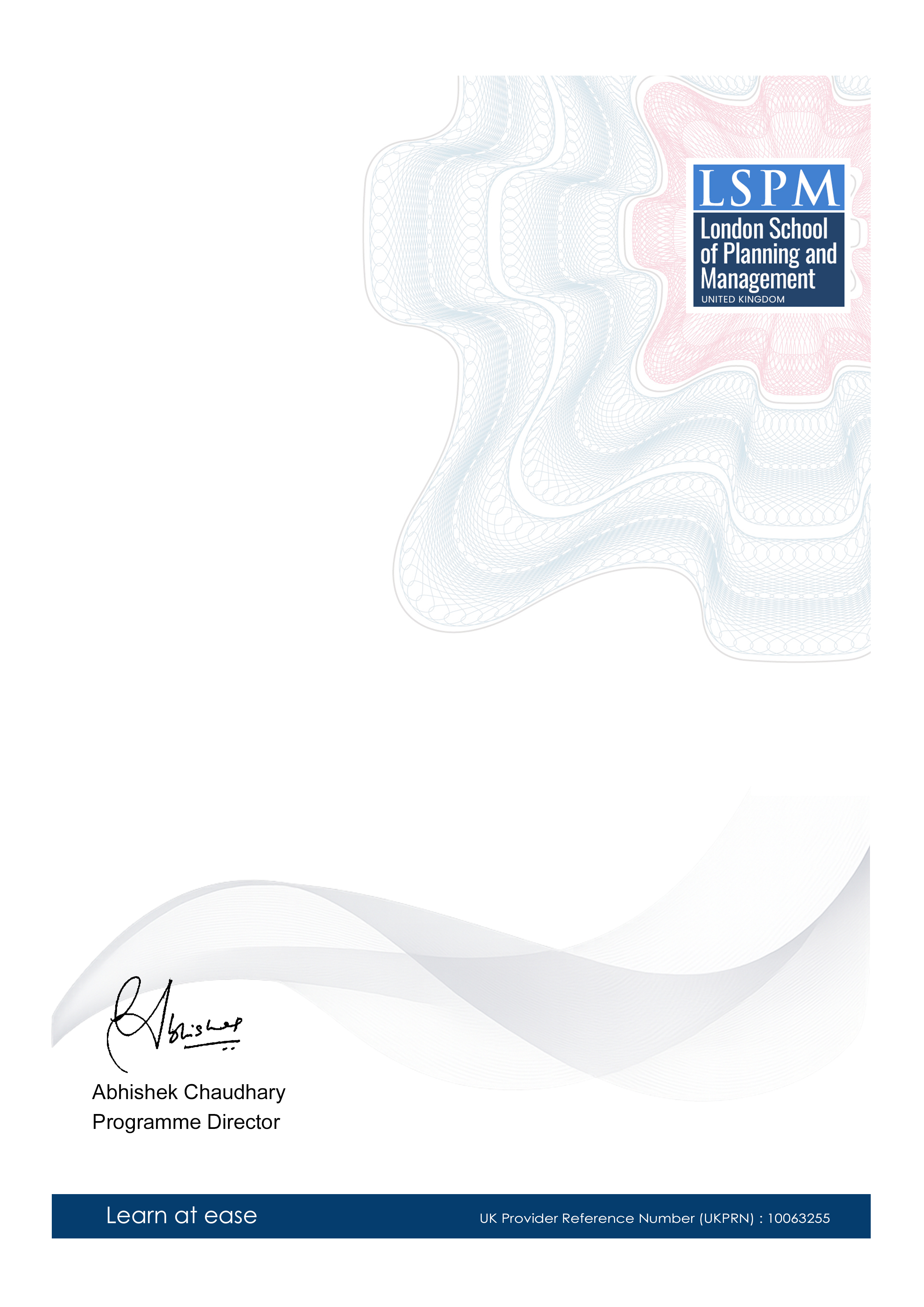Global Certificate Course in Fisheries Research and Management
-- viewing nowThe Global Certificate Course in Fisheries Research and Management is a comprehensive program designed to equip learners with essential skills for success in the fisheries industry. This course is critical for individuals seeking to understand the latest research methods, data analysis techniques, and management strategies in fisheries.
6,036+
Students enrolled
GBP £ 149
GBP £ 215
Save 44% with our special offer
About this course
100% online
Learn from anywhere
Shareable certificate
Add to your LinkedIn profile
2 months to complete
at 2-3 hours a week
Start anytime
No waiting period
Course details
• Fisheries Science Fundamentals: Introduction to fisheries, fish biology, fisheries ecology, and population dynamics.
• Fisheries Research Methods: Research design, data collection, statistical analysis, and data interpretation for fisheries research.
• Fisheries Management Principles: Fisheries management frameworks, sustainable fishing practices, and fisheries policy.
• Fisheries Stock Assessment: Stock assessment methods, population modeling, and fisheries monitoring.
• Fisheries Economics: Economic principles, cost-benefit analysis, and economic impact of fisheries.
• Aquaculture and Fish Farming: Aquaculture systems, fish farming practices, and sustainable aquaculture.
• Fisheries Technology: Advanced technologies for fisheries research, monitoring, and management.
• Climate Change and Fisheries: Climate change impacts on fisheries, adaptation strategies, and mitigation measures.
• Fisheries Governance and Sustainability: Fisheries governance, international policies, and sustainability in fisheries.
Career path
As a fisheries scientist, you'll conduct research on aquatic ecosystems, fish populations, and their habitats. Your work will contribute to the development and implementation of sustainable management practices and strategies. - **Fisheries Biologist (25%)**
Fisheries biologists focus on the biological aspects of fish populations and their environments. They study fish species, their life cycles, and the impacts of human activities on their populations, contributing to the conservation and management of aquatic resources. - **Fisheries Engineer (15%)**
Fisheries engineers apply engineering principles and technology to the design, construction, and maintenance of fisheries-related infrastructure and systems. They work on fish hatcheries, fish passes, fish farming facilities, and other projects that support sustainable fisheries. - **Fisheries Manager (10%)**
Fisheries managers oversee the operations of fisheries, aquaculture facilities, or conservation programs. They develop and implement management plans, monitor fish populations, ensure compliance with regulations, and collaborate with various stakeholders to balance resource use and conservation. - **Fisheries Technician (10%)**
Fisheries technicians support the work of fisheries scientists, biologists, and managers by conducting fieldwork, collecting data, maintaining equipment, and performing laboratory analyses. They play a crucial role in the collection and processing of information that informs fisheries management decisions. These percentages represent the job market trends in the fisheries research and management sector in the UK. Explore these exciting roles and contribute to the sustainable management and conservation of aquatic resources.
Entry requirements
- Basic understanding of the subject matter
- Proficiency in English language
- Computer and internet access
- Basic computer skills
- Dedication to complete the course
No prior formal qualifications required. Course designed for accessibility.
Course status
This course provides practical knowledge and skills for professional development. It is:
- Not accredited by a recognized body
- Not regulated by an authorized institution
- Complementary to formal qualifications
You'll receive a certificate of completion upon successfully finishing the course.
Why people choose us for their career
Loading reviews...
Frequently Asked Questions
Course fee
- 3-4 hours per week
- Early certificate delivery
- Open enrollment - start anytime
- 2-3 hours per week
- Regular certificate delivery
- Open enrollment - start anytime
- Full course access
- Digital certificate
- Course materials
Get course information
Earn a career certificate

